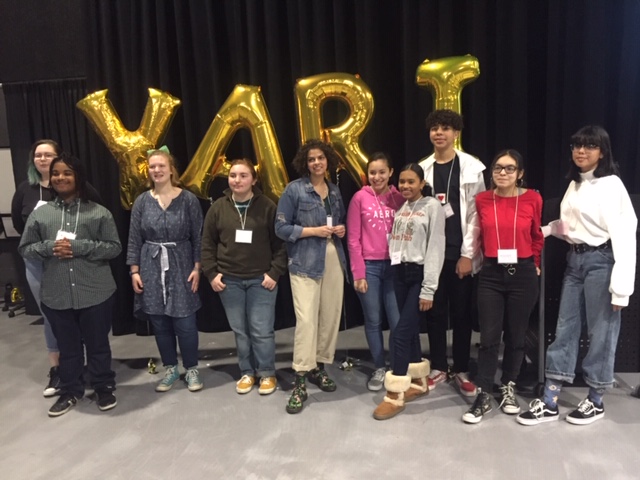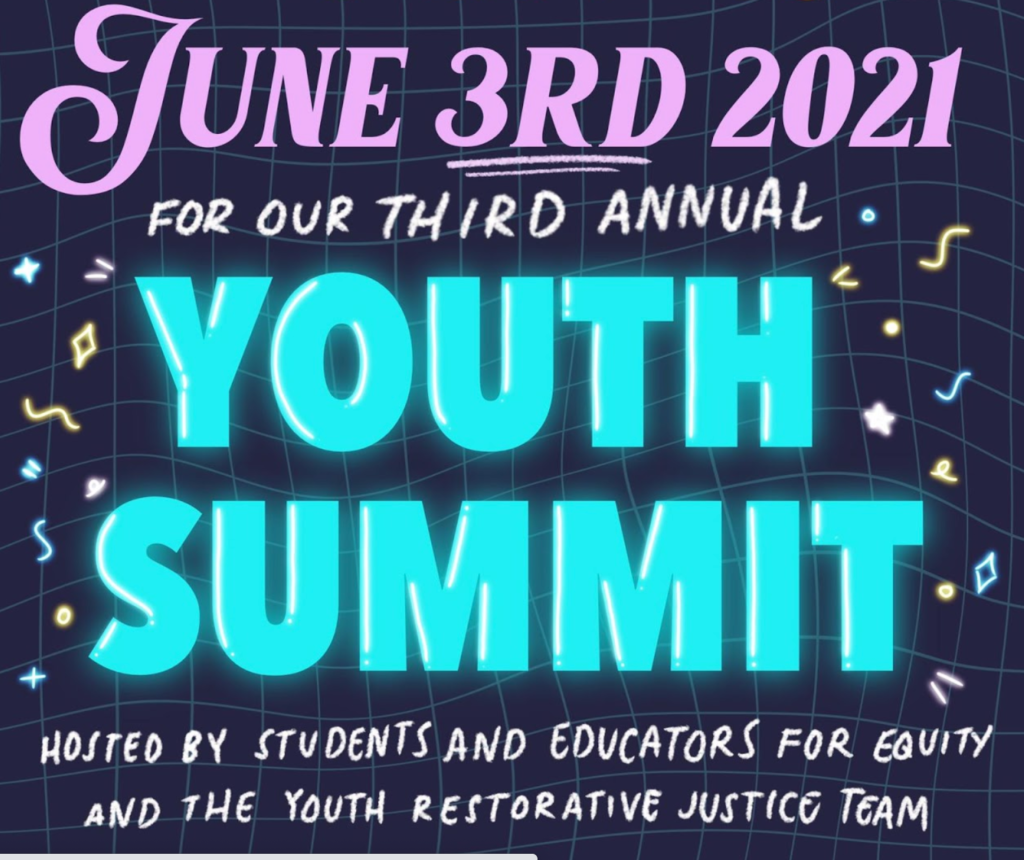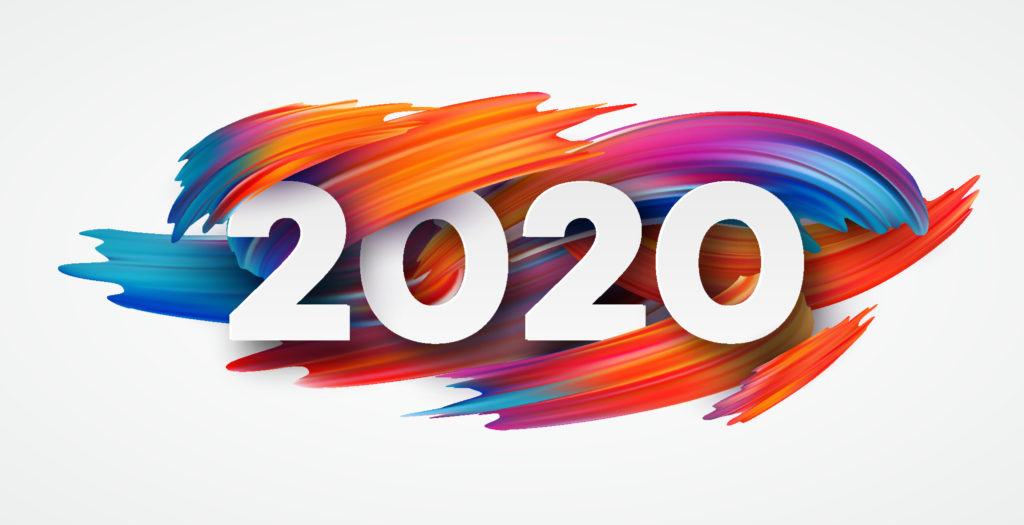What is the Current Landscape for Postsecondary Competency-Based Education in the United States?

In State of the Field: Findings From the 2020 National Survey of Postsecondary Competency-Based Education, the American Institutes for Research (AIR) shares data from its third nationwide scan. An overarching takeaway is that despite any setbacks that could have occurred during the COVID-19 pandemic, interest in postsecondary competency-based education has grown. In Fall 2020, 3,217… Read More ›
For Students, Lived Experience = Expertise

As I watched the youth researchers deliver their project presentations during the conclusion of the YARI Project held in December 2020, I beamed with excitement, awe, inspiration and pride. After a formidably challenging year, to say the least, the youth researchers forged ahead and persisted to successfully complete their research projects. The final event did… Read More ›
2021 Youth Summit

Students and Educators for Equity (SEE) and Youth Restorative Justice (YRJ) aim to bring together a collective of student voices to highlight the effects of disproportionality on students, while providing best practices to address and dismantle disproportionality. The youth-led summit will elevate student perspectives in an effort to foster inclusive, humanizing and critical learning environments… Read More ›
Promising Practices and Recommendations for Designing Dual Enrollment for Students from Special Populations

In Dual Enrollment for Students from Special Populations: Improving College Transitions for English Learners, Students with Disabilities, Foster Youth and Young People Experiencing Homelessness, JFF explores promising practices and recommendations for designing dual enrollment with the assets and needs of these students at the center. Interest in dual enrollment opportunities in California is at an all-time high, enough… Read More ›
Your Struggles are Systemic and Valid: Reflections from a Youth Researcher of Color

Humans have an inherent desire for everything we do to mean something – to be bigger than ourselves. In reflecting on my time with the Youth Action Researchers at the Intersection (YARI) project, I wanted to accurately depict this project in a somewhat professional manner: write down data and draw up organized charts. But in truth, this has been messy,… Read More ›
Student researches how historically marginalized students can pursue meaningful careers after high school

Everitt Price is part of the cohort of youth researchers in the Youth Action Researchers at the Intersection project. He researched the question: How can historically marginalized students pursue meaningful paths and healthy careers after high school?” Meet the Student Researcher Everitt Price (he, him) Family members: Mom, grandma and three sisters Favorite song: Dream On by Aerosmith What would people not know just by looking at you: I can dance. How you… Read More ›
Youth Examine How Their District Can Improve Education for High School ESL/ELL Latinx Students

Angel Feliz and Michellet (Michy) Brand are part of the cohort of youth researchers in the Youth Action Researchers at the Intersection project. They researched the question: How can the Providence public schools district improve their education for high school ESL/ELL Latinx students? Meet the Student Researchers Angel Feliz (he, him) Birthplace: Dominican Republic Family… Read More ›
Students Examine How Racial and Ethnic Backgrounds of Teachers and Students Affect Classroom Relationships

Laila Ibrahim and Amy Monroy are youth researchers involved in the Youth Action Researchers at the Intersection (YARI) project. They researched the question: How do the racial/ethnic backgrounds of teachers and students affect student-teacher relationships within the classroom? https://youtu.be/7Pxu0v6WTS0 Meet the Student Researchers Laila Ibrahim (she, her) Birthplace: Pasadena, CAFamily members: Parents and older sisterCurrent favorite book: A Brief… Read More ›
Students Explore the Advantages and Disadvantages Female Students of Color Face in Schools

Crissanny and Michelle are part of the cohort of youth researchers in the Youth Action Researchers at the Intersection project. They researched the question: What advantages and disadvantages do female students of color face in schools, and how does it affect their learning journeys? Meet the Student Researchers Crisanny Martinez (she, her) Birthplace: Dominican Republic… Read More ›
Youth Researchers Explore How Schools’ Impressions of Students and Disabilities Impact Accessibility

Meet the Student Researchers Adi Gamache (he, him) Family members: mom, dad and two younger brothers Current favorite song: It Will Come Back by Hozier What’s one thing people wouldn’t know just by looking at you: I’ve played over 300 hours of a farming simulator game. How you have coped through the pandemic: Playing a… Read More ›
10 Drivers of Engagement You Can Use Right Now

Whether learning occurs in brick-and-mortar schools or in virtual environments, student engagement drives an impressive array of student outcomes. Eric Toshalis, Senior Director of Impact at KnowledgeWorks, uses research to present and explain ways educators can drive student engagement in their classrooms regardless of whether they are teaching virtually or in-person. Below is a list of resources… Read More ›
The Resources You Loved in 2020

We can all agree 2020 was a difficult year. But it did bring many opportunities for change, and Students at the Center has been here to offer a guiding hand. We hope you’ve found at least one thing to help you build a more resilient, equitable future for your classrooms and schools. Here are your… Read More ›